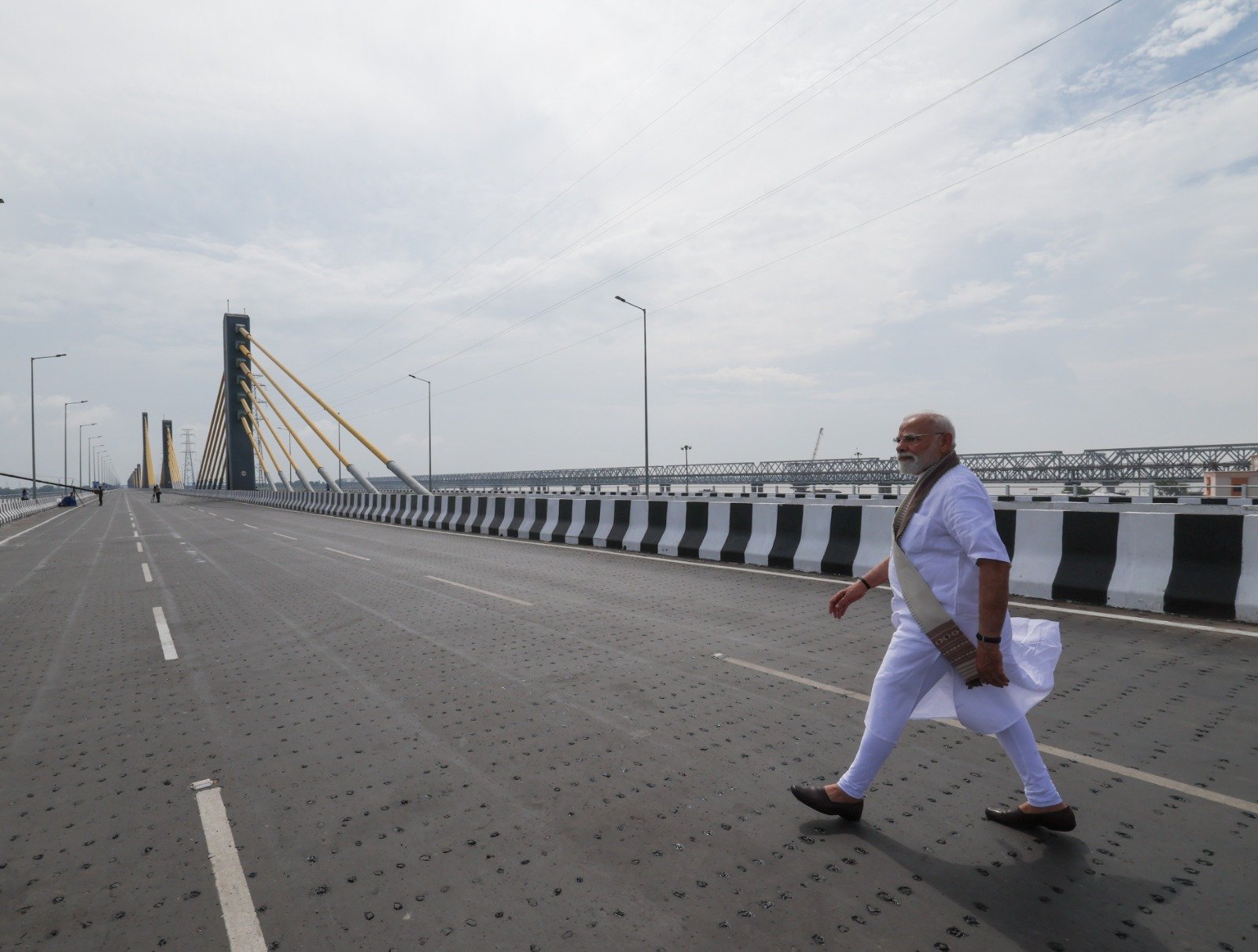Indian PM Modi Explains How India’s Reform Push and Tech Ambitions Are Powering Its Rise as a Global Economic Force
In a noteworthy address at the Economic Times World Leaders Forum in New Delhi, Indian Prime Minister Narendra Modi laid out an expansive vision for India’s economic trajectory, anchoring it firmly in macroeconomic stability, bold reforms, and a new national confidence.
Speaking to an audience of global business leaders and policymakers, Modi described India as not only the world’s fastest-growing major economy but also as a nation now positioned to reshape the global economic order.
 |
| Image Source: PM NaMo |
He credited this momentum to policy discipline and structural reforms undertaken over the past decade--highlighting a declining fiscal deficit, record-low inflation, robust forex reserves, and surging domestic investor confidence through Systematic Investment Plans (SIPs).
Beyond metrics, Modi emphasized that the real story lies in the economic fundamentals powering India’s transformation.
From EPFO job additions hitting a record 2.2 million in June to solar manufacturing capacity crossing the 100 GW milestone, he painted a portrait of an economy not just expanding, but evolving.
Delhi Airport’s entry into the elite 100-million-passenger club and a long-overdue upgrade in India’s credit rating by S&P added symbolic weight to his case.
Reflecting on India’s historical reluctance to embrace frontier technologies, Modi acknowledged past policy missteps--India, he said, “missed the bus” on internet revolutions, 2G technology, and semiconductors.
But post-2014, he asserted, the narrative has flipped. India now deploys the world’s fastest rollout of indigenous 5G, is developing its own 6G technology, and expects its first domestically produced semiconductor chip to hit the market by year’s end.
Modi also used the occasion to mark National Space Day by spotlighting India’s rapid ascent in the space sector.
From just 42 space missions in the three decades before 2014 to more than 60 in the last eleven years alone, India has emerged as a serious contender in global space exploration.
He highlighted policy liberalization, a ₹1,000 crore VC fund for space startups, and over 300 private players now active in the sector. The country’s first space station, he noted, is no longer a distant dream.
In parallel, Modi listed major legislative and regulatory changes passed during the recent Monsoon Session of Parliament--from a simplified, plain-language Income Tax Bill to the decriminalization of 300 additional minor offences under Jan Vishwas 2.0.
He announced upcoming reforms to India’s GST system to be completed before Diwali, aiming to streamline compliance and reduce consumer prices.
The Prime Minister framed these reforms as part of a deliberate, conviction-driven agenda--not responses to crisis but as tools to engineer quantum leaps.
This reform arsenal, he said, will power India’s manufacturing growth, spur job creation, and improve both Ease of Doing Business and Ease of Living across sectors.
Echoing his Independence Day address, Modi reaffirmed India’s commitment to becoming a developed nation by 2047.
The path, he said, lies in an Atmanirbhar Bharat--defined by speed, scale, and scope.
He invoked India’s pandemic response, which saw the production of over 220 crore vaccine doses, the rapid scaling of testing infrastructure, and the launch of CoWIN as examples of India’s ability to deliver at transformative scale.
On the export front, he shared that India’s electronics exports had grown tenfold since 2014, automobile exports more than doubled, and Indian-made metro coaches and electric vehicles are now headed to over 100 countries. A landmark event marking this milestone is scheduled for August 26.
Speaking at The Economic Times World Leaders Forum. @EconomicTimes https://t.co/g7cebMoUSA
— Narendra Modi (@narendramodi) August 23, 2025
Modi also pointed to research and innovation as critical pillars. India’s R&D spending has doubled, patent filings are up 17-fold, and over 6,000 higher education institutions now house dedicated R&D cells.
With a ₹1 lakh crore Research Development and Innovation Scheme now approved, he invited private industry to ramp up investments in emerging sectors including quantum tech, clean energy, advanced materials, and biotech.
“India is not a nation that tosses pebbles into stagnant waters,” Modi said in his closing remarks. “It is a nation that has the strength to redirect even the fastest-flowing currents.”
He ended on a note of transformation, expressing confidence that India, guided by the mantra of Reform, Perform, Transform, will play a decisive role in shaping the contours of global growth in the decades ahead.
